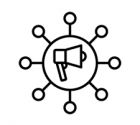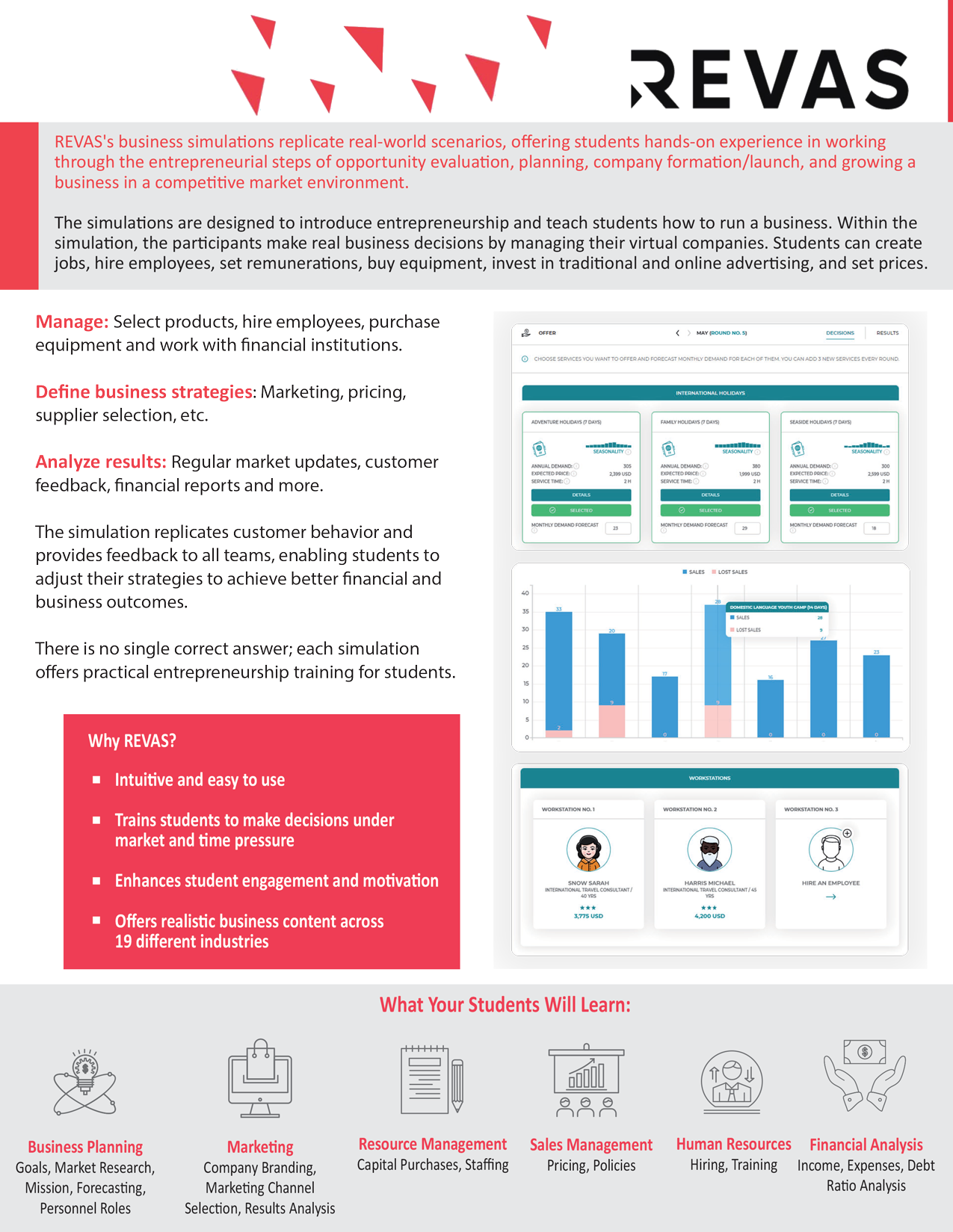Revas Business Simulation
Business Management

Entrepreneurship

Marketing

Business Studies

Economics

Finance
What is REVAS?
Simulations for Secondary Schools, College, and Universities
Revas Business Simulations are tools designed to introduce entrepreneurship into classes and teach students how to run a business. Within the simulation, the participants make real business decisions by managing their virtual companies. Students can create jobs, hire employees, set remunerations, buy equipment, invest in traditional and online advertising, and set prices.
How does it work?
- Divide your group into teams that will start separate virtual companies.
- Teams run their companies making realistic business decisions.
- Virtual companies compete for customers with businesses in one market.
- Teams analyze market results, draw conclusions, solve business problems.
We have prepared simulations related to various industries so that players can acquire knowledge and skills during virtual gameplay related to various industries.
Why REVAS?
- Intuitive & easy to use
- Develops teamwork skills for business
- Simulated decision making with time constraints
- Boosts student engagement and motivation to learn business skills
- Foster realistic business decisions
Business Simulation Options:
How to implement REVAS at your school
In order to prepare for the training session, participants need to watch video instructions of the first 3 rounds. After watching the videos, teachers take a short test which confirms they are ready to attend the training. Training session takes place online and lasts 3 hours.
During the session, participants have the opportunity to test the game as a student/player. The Instructor will show participants how to create an account and provide all the login details they need to start the game. After joining the game, teachers make realistic business decisions for 3 rounds. In the simulation the participants decide on key matters like naming their company and writing a mission statement as well as make business decisions about hiring employees and selling services.
At the end of the training the Instructor reveals the ranking from the game. The ranking shows whose company turned out to be the most successful.
- 1. Discussion
We discuss in what way REVAS could be useful for you. This can be done either through a phone conversation, e-mail or during an online meeting.
- 2. Offer
We present you different subscription packages for Business Simulations and help you choose the one that meets your requirements.
- 3. Implementation
After deciding that you want to use REVAS Business Simulations in your school, we will choose simulation industries you will be using and contact the teachers to train and certify.
- 4. Training
We will conduct a Business Simulation Games certifying training for teachers through a virtual meeting (3 hour session) and give you access to simulations.
- 5. Support
After the training, you and your colleagues have our full technical and content-related support. If you have any questions about the simulation – contact us through e-mail or phone.
Competitions
During the competition, participants play the role of entrepreneurs managing virtual companies in one of 16 different industries.
The participants compete with each other on the virtual market, testing various business strategies. During the competition, players can follow their results in the team ranking. All virtual managers receive certificates of participation and the best ones receive prizes.
Remember! The competition can be organized both onsite and online. During the competition you will have constant support from the REVAS team
Why should you organize a competition?
- Practical business learning
- Shaping managerial competences
- Promoting the topic of entrepreneurship




















